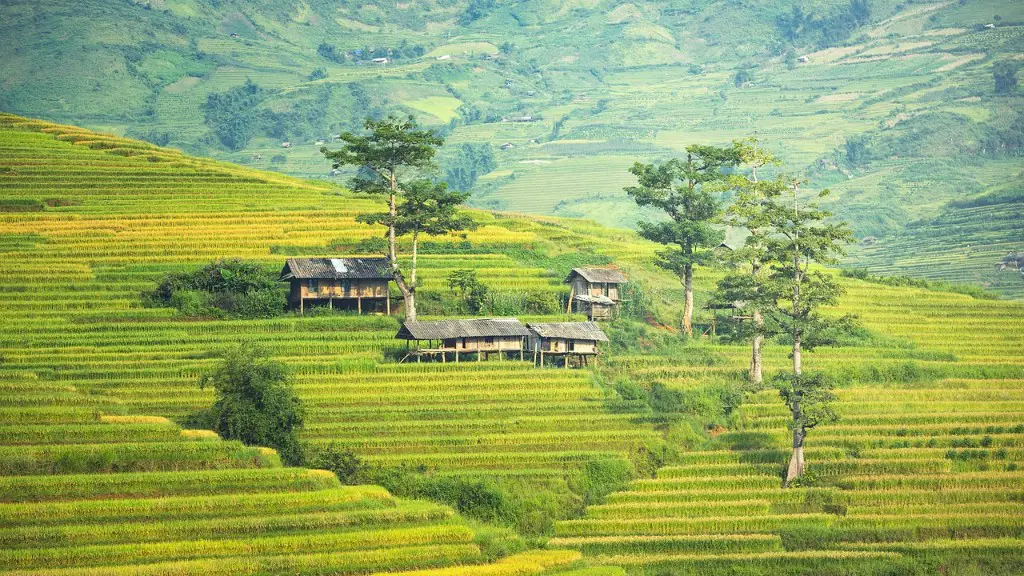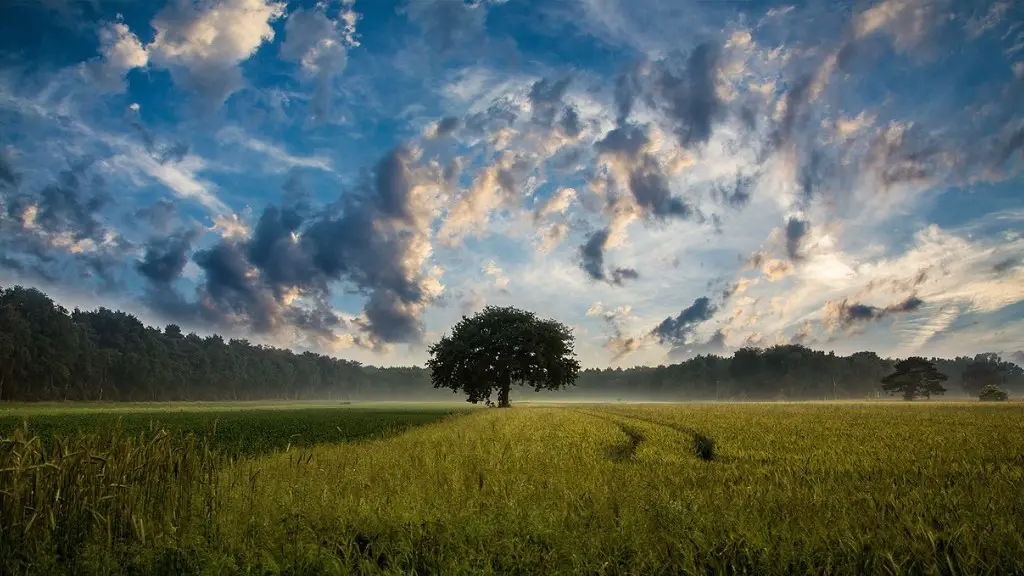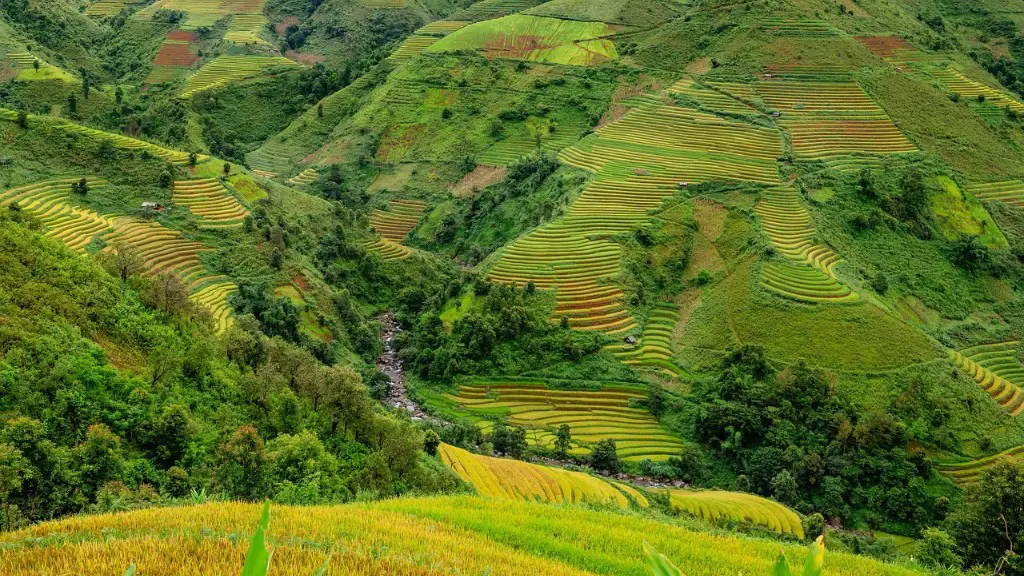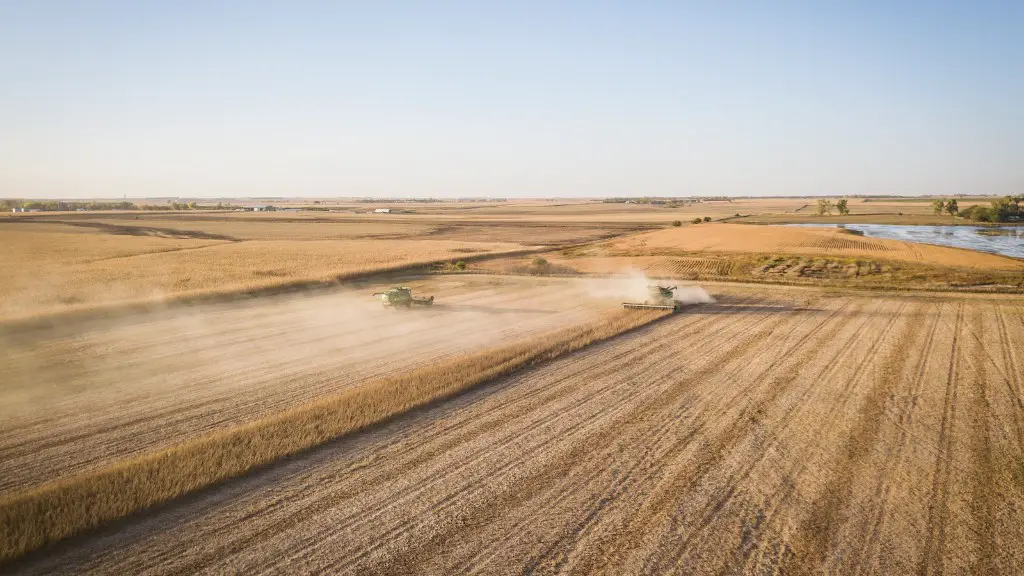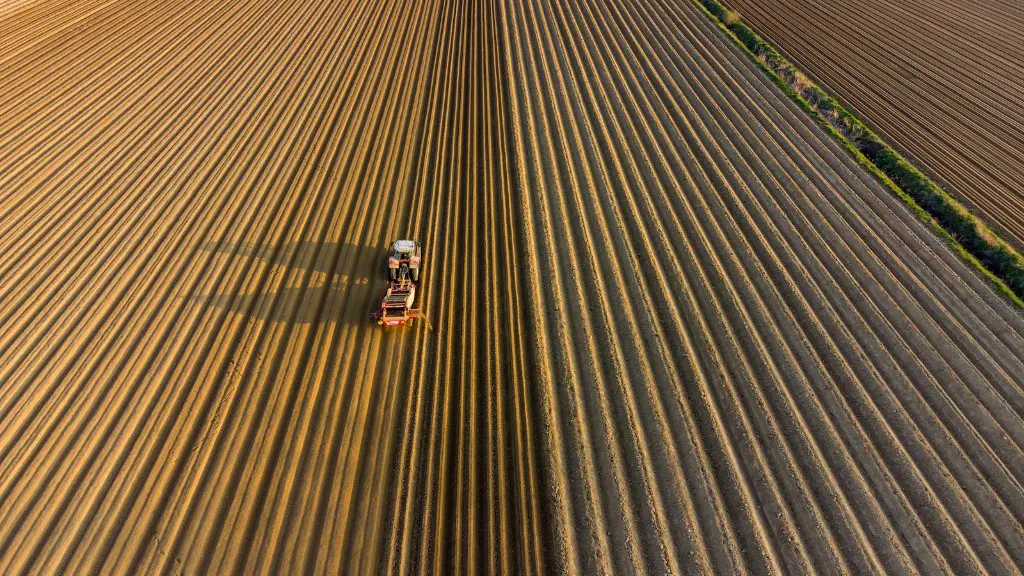The advent of Agriculture was a turning point in human history. For the first time, people began to domesticated plants and animals, which led to a sedentary lifestyle and civilizations as we know them today. Before Agriculture, people were hunter-gatherers, living off the land and moving around constantly in search of food. The invention of Agriculture changed all that, and we have been living in an agricultural society ever since.
Life before agriculture was very different than it is today. For one, the human diet was much more diverse. Humans hunted and gathered a wide variety of plants and animals, which provided them with more nutrients and vitamins than a diet of only agricultural products. Additionally, the development of agriculture led to the rise of civilizations and cities. This allowed for a division of labor, which resulted in a more complex society.
What was life like before the agricultural revolution?
Farming has been a major part of human society for thousands of years. It was a significant turning point in our history, as it allowed us to settle down in one place and develop complex civilizations. Agriculture allowed us to domesticated plants and animals, which led to a more reliable food supply. It also allowed for the development of trade and commerce, as farmers could produce surplus crops that could be traded for other goods.
The abundance of food supplies allowed for denser populations and more people became free to pursue interests outside of worrying about where their next meal would come from. This led to the growth of small settlements into towns and eventually cities. Agriculture was a key factor in this process, as it provided the necessary food to support these larger populations.
What was before the agricultural age
The Neolithic Era is the period in human history when some groups of humans began to transition from a nomadic, hunter-gatherer lifestyle to a more settled life of keeping small gardens and later tending large crop fields. This transition took place gradually over hundreds or even thousands of years. The Neolithic Era is marked by a number of important innovations, including the development of agriculture, the domestication of plants and animals, and the making of pottery and other tools and weapons from stone.
Thank you for your question. Agriculture is critical for human survival as it is responsible for producing the food and fiber we need to live. Without it, we would be naked, lacking in essential nutrients, and vulnerable to the elements. We rely on agriculture for our clothes, our food, and our shelter, and it is something we cannot do without. Thank you for your question.
How did humans live before invention of agriculture?
The development of agriculture about 12,000 years ago was a major turning point in human history. Prior to this, humans were mostly nomadic, moving from place to place in search of food. Agriculture allowed humans to settle down in one place and farm the land. This led to the development of civilizations and the growth of cities. Agriculture has had a profound impact on human society and has played a key role in our development as a species.
This new study provides fascinating insights into the origins of warfare. It shows that even in the absence of agriculture and complex social organization, warfare can and did occur. This suggests that the human propensity for violence is deeply rooted, and that there is a continuum between chimpanzee raiding and full-blown human warfare. These findings have important implications for our understanding of human nature and the causes of conflict.
Did agriculture make life better?
When early humans began farming, they were able to produce enough food that they no longer had to migrate to their food source. This meant they could build permanent structures, and develop villages, towns, and eventually even cities. Closely connected to the rise of settled societies was an increase in population. This led to an increased need for food, which was met by improved agricultural techniques, such as irrigation and the use of crop rotations. These advancements allowed for even more settlement and population growth.
The Agricultural Revolution was a period of time when humans began to transition from hunting and gathering to agriculture. This change forever changed humanity, as agriculture allowed for settled living, and led to the development of civilizations. The Agricultural Revolution is thought to have begun around 12,000 years ago, and marks a crucial turning point in human history.
How did agriculture impact us
Agriculture is a vital part of the US economy, contributing a significant share of the country’s gross domestic product. The industry’s output is worth billions of dollars and employs millions of Americans. Agriculture also plays a significant role in global trade, providing food and other products to countries around the world.
For over a million years, humans obtained food by hunting wild animals and gathering plants. They depended almost completely on the local environment for their sustenance. Such hunter gathering societies existed extensively until 10,000 yrs ago. A few isolated groups continue to this day.
Why did agriculture start?
Agricultural communities were some of the first communities to develop approximately 10,000 years ago. This was when humans began to domesticate plants and animals. domesticity allowed for families and larger groups to build communities and transition from a nomadic hunter-gatherer lifestyle. This lifestyle was dependent on foraging and hunting for survival. However, with agricultural communities, individuals were able to establish food sources and settle down. This created the first civilizations and allowed for humans to advance in their social, technological, and economic development.
The origin of agriculture was around ten thousand years ago. What is known is based on evidence gathered from archaeological sites. Agriculture allowed for the domestication of plants and animals, which led to the development of civilizations. Agriculture allowed for the growth of cities and the rise of civilizations. The agricultural revolution was a major turning point in human history.
What happens if we didn’t have agriculture
Agriculture allows us to support far more people than would be possible if we were reliant on hunting and gathering. Agriculture also provides us with a more reliable food supply, which helps to prevent famines and starvation.
The agricultural revolution was a pivotal point in human history, leading to a massive increase in the world population. Prior to this revolution, experts estimate that there were only six to ten million people on Earth. This is because hunter-foragers could only sustain a limited number of people. However, after the agricultural revolution, the world population grew to over 250 million within 10,000 years. This is a testament to the power of this revolution in transforming the human race.
Why is agriculture so important?
Agriculture is the world’s largest industry, accounting for over a trillion dollars in annual output. It employs more than one billion people and provides food for billions more. Pasture and cropland occupy around 50 percent of the planet’s habitable land, making it a critical contributor to global biodiversity.
Until agriculture was developed around 10,000 years ago, all humans got their food by hunting, gathering, and fishing. This means that they had to travel to find food, and they had to be able to find food that was nutritious and would sustain them. They also had to be able to defend themselves from predators and other dangers.
Warp Up
Life before agriculture was incredibly different from life today. For one, the human population was incredibly small. Instead of living in settled communities, most people were nomadic hunter-gatherers. This meant that people had to move around constantly to find food. They also had to be very skilled at hunting and gathering in order to survive. The environment was also very different without the impact of humans. There were no domesticated animals and the landscape was largely untouched by human activity.
Overall, life before agriculture was likely harder than life is now. People had to forage for food and probably didn’t get enough to eat on a regular basis. They also had to spend a lot of time looking for food, which left less time for other activities. Additionally, they were more likely to get sick or injured since they didn’t have access to modern medicine.
